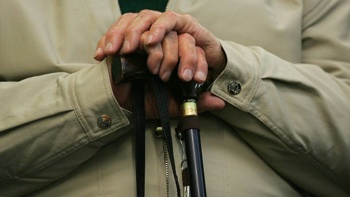Ukraine's Jamala has won the Eurovision Song Contest in Stockholm ahead of Australia's Dami Im and Russia's Sergey Lazarev.
In '1944', Ukraine's 32-year-old Jamala sings about strangers coming to "kill you all", saying "we're not guilty" - remembering a time when Josef Stalin deported Tatars from Crimea.
Jamala, herself a Tatar, stands alone on the Stockholm stage and sings "you think you are gods" against a blood-red backdrop - leading reporters and online commentators who have seen Ukraine's rehearsals and semi-final performance to draw parallels with Russia's annexation of Crimea in 2014.
Tatars, a Muslim people indigenous to the Black Sea peninsula and numbering about 300,000 in a population of 2 million, opposed the annexation, which followed the overthrow of a Moscow-backed president in Kiev.
Event organiser, the European Broadcasting Union, said Ukraine's offering did not contain political speech.
Nonetheless, among many commentators making a similar point, Swedish daily Dagens Nyheter said in a column: "You must close your eyes really hard not to see the parallels between this year's contribution from Ukraine, which is about Stalin's deportations from the Crimea in the 1940s, and contemporary events."
Australia's Im won the most votes from professional music juries in the 42 competing countries but lost out on the count of votes from Eurovision fans phoning in.
She impressed with her powerful performance of her song Sound of Silence in a packed packed Globe Arena theatre in the Swedish capital.
The show was watched by an estimated global audience of more than two million.
Australia was invited back to the contest this year after being granted a wildcard entry in 2015 when Guy Sebastian came in fifth with his song Tonight Again.
Eurovision, which was started in the 1950s with the aim of uniting Europe after World War Two, has expanded ever further outside the continent in recent years due to its popularity.
Take your Radio, Podcasts and Music with you









